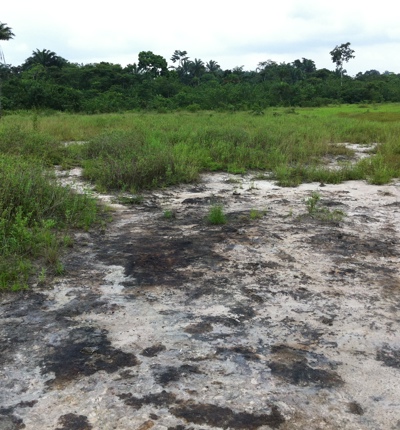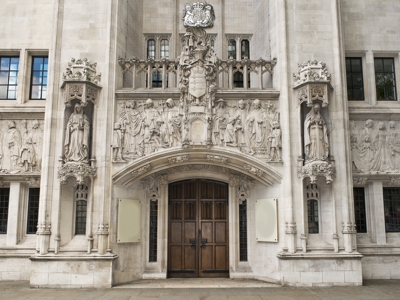
Supreme Court: Okpabi v Royal Dutch Shell: What does the judgment mean?
Analysis of the landmark judgment given by the Supreme Court that Nigerian communities affected by oil pollution can bring their claim against UK based Royal Dutch Shell in the. English Courts
Posted on 12 February 2021
Supreme Court clarifies parent company liability principles in claims by Nigerian communities against Royal Dutch Shell
The judgment of the UK Supreme Court in Okpabi and others v Royal Dutch Shell Plc (RDS) and another [2021] UKSC 3
-
Determines that there is a good arguable case that Royal Dutch Shell Plc is legally responsible for the systemic pollution of Nigerian rural communities.
-
Highlights that corporate global policy frameworks and public commitments by multinational parent companies can give rise to liability for environmental and human rights abuses.
-
Makes it clear that the Court of Appeal placed an unrealistic evidential burden on claimants who do not have access to internal corporate documents. The Supreme Court emphasises the crucial role of disclosure in parent company liability cases and how such cases are unlikely to be suitable for summary determination.
On 12 February 2021, the UK Supreme Court clarified the principles of parent company liability in a judgment concerning two claims brought by thousands of Nigerian villagers against Royal Dutch Shell Plc (RDS) and its Nigerian subsidiary, the Shell Petroleum Development Company of Nigeria (SPDC).
The Supreme Court held that there was a real issue between the claimants and RDS that should be tried and that the claim against RDS was not suitable for summary determination. In doing so, the Supreme Court reaffirmed and built on its earlier parent company liability decision in Lungowe v Vedanta Resources plc [2019] UKSC 20.
After the Vedanta decision was handed down in 2019, the Supreme Court invited the parties in Okpabi to consider “whether it is necessary for the appeal to proceed to a full hearing, following the judgment in Vedanta.” RDS and SPDC maintained that a full hearing was required, which gave the Supreme Court the opportunity to clarify the principles of parent company liability established in Vedanta.
The Supreme Court in Okpabi emphasised that the principles to be applied when assessing a parent company’s liability were not a distinct or novel category of liability but were orthodox, general principles of tort law regarding the imposition of a duty of care.
The Supreme Court in Okpabi approved of the appellants’ characterisation of four different routes under which a duty of care could arise for a parent company [at para 26]:
-
Taking over the management or joint management of the relevant activity
-
Providing defective advice and/or promulgating defective group-wide policies
-
Taking steps to implement group-wide policies
-
Holding out that it exercises a particular degree of supervision and control of a subsidiary.
However, the Supreme Court made it clear that these four routes are not exclusive categories under which liability could arise and that the test for parent company liability is broad and non-restrictive.
Mini-trials, disclosure and the evidential burden on claimants
In Okpabi, the Supreme Court emphasised the importance of disclosure and cautioned against making determinations and striking out a case against a parent company prior to disclosure and a full trial. Lord Hamblen, with whom the other members of the court agreed, held that “the Court of Appeal was drawn into conducting a mini-trial and that led it to adopt an inappropriate approach to contested factual issues and to the documentary evidence” [para 102].
In relation to disclosure, the Supreme Court noted “the majority of the Court of Appeal make no reference to the obvious importance of internal corporate documents to the issues in this case” [para 133] and “documentation relating to operational matters” [para 134] which were not available to the Claimants prior to disclosure.
The case provided a stark warning of the dangers of summarily dismissing claims of this nature in the absence of disclosure. Lord Hamblen observed that: “The production of [two internal corporate documents] for the appeal hearing illustrate the danger of seeking summarily to determine issues which arise in parent/subsidiary cases such as this without disclosure.
Both are clearly material documents. Had there been no appeal, the appellants’ claim would have been dismissed without consideration of either of them.” [para 136] The court noted that none of Shell’s witnesses had referred to the content or even the existence of these two crucial internal documents, highlighting the danger of relying on untested witness evidence prior to disclosure.
The Court concluded:
“Whilst I consider that the appellants’ pleaded case and reliance on the RDS Control Framework and the RDS HSSE Control Framework is sufficient to raise a real issue to be tried, that conclusion is further supported by their witness evidence, as summarised when setting out the appellants’ case above, and, for reasons already given, the very real prospect of relevant disclosure being provided...” [Para 154]
The Supreme Court, therefore, makes it plain that courts cannot place unrealistic evidential burdens on claimants in parent company liability cases prior to trial, when so much of the evidence will turn on internal corporate documents which will only become available upon disclosure.
Potential liability for Group-wide standards
The Court of Appeal held in Okpabi that group-wide standards, policies and guidelines could never give rise to a parent company’s liability. The Supreme Court rejected this limitation and held that this finding was inconsistent with the Supreme Court’s guidance Vedanta. It held that the promulgation of group wide policies and standards could give rise to a duty of care in relation to the operation of one of the parent company’s subsidiaries:
“First, to the extent that the Court of Appeal indicated that the promulgation by a parent company of group wide policies or standards can never in itself give rise to a duty of care, that is inconsistent with Vedanta.” [Para 143]
“At Para 52 [of Vedanta] Lord Briggs said he did not consider that “there is any such reliable limiting principle”. He pointed out that: “Group policies…may be shown to contain systemic errors which, when implemented as of course by a particular subsidiary, then cause harm to third parties.” [Para 145]
Given that most multinational corporations have in place Group-wide policies, standards and guidance, it follows that there is wide potential scope for parent company liability with regard to a subsidiary whose operations have caused human rights abuses or environmental impacts.
Is “control” the operative test for parent company liability?
The Court of Appeal in Okpabi considered that there needed to be clear evidence that the parent company exercised “operational control” over its subsidiary for liability to arise. The Supreme Court has rejected such a narrow test and makes it plain that liability can also arise in a wide variety of ways, including by virtue of the advice, supervision and public commitments given by a parent company:
“Secondly, the majority of the Court of Appeal may be said to have focused inappropriately on the issue of control. Simon LJ appears to have regarded proof of the exercise of control by the parent company as being critical... As Lord Briggs pointed out at para 49 in Vedanta it all depends on: “the extent to which, and the way in which the parent availed itself of the opportunity to take over, intervene in, control, supervise or advise the management of the relevant operations….of the subsidiary.” [Para 146]
The Supreme Court reiterated the example from Vedanta, that a parent company could incur legal liability if it holds itself out as exercising supervision and control of its subsidiaries but fails to do so.
“A specific example of a case in which a duty of care may arise regardless of the exercise of control is provided by what the appellants have described as Vedanta route (4). This is based on what Lord Briggs stated at para 53:
“…the parent may incur the relevant responsibility to third parties if, in published materials, it holds itself out as exercising that degree of supervision and control of its subsidiaries, even if it does not in fact do so. In such circumstances its very omission may constitute the abdication of responsibility which it has publicly undertaken.” [Para 148]
The passage suggests that the Supreme Court expects multinational companies to be held to the public commitments they make.
Group Corporate structures and “Presumptions” of liability
Finally, the Supreme Court rejected the proposition that parent company cases can be approached by reference to any generalised assumption or presumptions of liability. In so doing the Supreme Court rejected passages of the Court of Appeal’s judgment which stated that “it would be surprising if a parent company were to go to the trouble of establishing a network of overseas subsidiaries with their own management structure if it intended itself to assume responsibility for the operations of each of those subsidiaries.” [para 196].
The Supreme Court makes it plain that there is no special doctrine in the law of parent company liability and no limit to the models of management and control which may be put in place within a multinational group of companies.
The Supreme Court considered that the way in which the Shell Group was structured was significant and supported that RDS may be liable for the harm suffered. The Court noted that “…it is of significance that the Shell group is organised along Business and Functional lines rather than simply according to corporate status. This vertical structure involves significant delegation.” (para 156) Many other parent companies organise their multinational groups in similar ways.

Supreme Court rules that polluted Nigerian communities can sue Royal Dutch Shell in the English courts
The Supreme Court has ruled that two Nigerian communities can bring their legal claims for clean-up and compensation against Royal Dutch Shell Plc and its Nigerian subsidiary in the English courts





